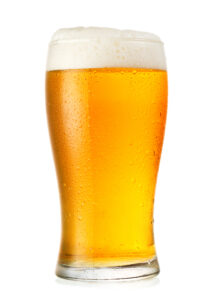
Possession of Open Container of Alcohol (POCA) in D.C.
It is against the law in Washington, D.C. to drink alcohol or to possess an open container of alcohol in public. It is also illegal to be drunk or intoxicated in public while endangering the safety of yourself or other people or property.
To speak with an attorney with extensive experience handling this type of criminal offense, please contact D.C. Possession of Open Container of Alcohol Attorney Jamison Koehler at 202-549-2374 or jkoehler@koehlerlaw.net.
Answers to the following frequently asked questions are provided below:
What is the Possession of an Open Container of Alcohol in D.C.?
What is the maximum penalty?
What is a “public area”?
What is an “alcoholic beverage”?
Will I go to jail if convicted of POCA?
Is there special treatment for first-time offenders?
Can I expunge/seal a criminal record for POCA?
Will I need a lawyer if arrested for POCA?
FREQUENTLY ASKED QUESTIONS
What is the Possession of an Open Container of Alcohol in D.C.?
D.C. law prohibits, among other things, the drinking of alcohol or the possession of an open container of alcohol in any street, alley, park, sidewalk or parking area; in any vehicle in or upon any street, alley, park, or parking area; and in any place in which the public has been invited but for which a license to sell alcohol has not been issued.
 In order to secure a conviction for this offense, the prosecution does not actually need to prove the presence of an alcoholic beverage in the container in question. In one case, for example, circumstantial evidence that the suspect appeared intoxicated and smelled of alcohol and that police recognized the distinct odor of vodka in a glass jar before they poured it out was sufficient to support a conviction. The police did not need to actually test the substance for the presence of alcohol. Desroziers v. District of Columbia, 19 A.3d 796, 797 (D.C. 2011).
In order to secure a conviction for this offense, the prosecution does not actually need to prove the presence of an alcoholic beverage in the container in question. In one case, for example, circumstantial evidence that the suspect appeared intoxicated and smelled of alcohol and that police recognized the distinct odor of vodka in a glass jar before they poured it out was sufficient to support a conviction. The police did not need to actually test the substance for the presence of alcohol. Desroziers v. District of Columbia, 19 A.3d 796, 797 (D.C. 2011).
At the same time, a label on the bottle indicating the presence of alcohol would not, without more, be sufficient. As the D.C. Court of Appeals put it: “Although the bottle’s label indicated an alcohol content of 40 percent, the record is devoid of other evidence that the liquid found in the open container was, in fact, the tequila indicated on the label or any other kind of liquor. None of the officers testified that the substance in the tequila bottle smelled or tasted like alcohol. Police did not seize the bottle, and there was no evidence that any officer opened or inspected it. The officers found no cups, flasks or other alcohol, and there was no evidence that Mr. Workman had been drinking or appeared intoxicated.” Workman v. United States, 96 A.3d 678, 681 (D.C. 2014).
What is the maximum penalty?
The maximum penalty for violating this offense is 60 days in jail and/or a $500 fine. D.C. Code § 25-1001. Conviction will also result in a mandatory payment of $50 to $250 to the Victims of Violent Crime Compensation Fund. Parrish v. District of Columbia, 718 A.2d 133, 135 (D.C. 1998). What is a “public area”?
What is a “public area”?
Public areas include any street, alley, park, sidewalk or parking area; any vehicle in such an area; and any private place to which the public is invited that is not licensed to sell alcoholic beverages. An exception would be on the sidewalk of a restaurant or bar that has a liquor permit. You are also allowed to possess alcohol on a front porch, terrace, bay window provided that the structure is an “integral” part of a private residence.
What is an “alcoholic beverage?”
“Alcoholic beverage” is defined as “a liquid or solid, patented or not, containing alcohol capable of being consumed by a human being.” D.C. Code § 25-101(5). The term does not include “a liquid or solid containing less than one half of 1% of alcohol by volume.”
Will I go to jail if convicted of POCA?
Because POCA is a minor misdemeanor, it is extremely unlikely that you will ever serve any jail time if convicted of this offense. It is much more likely that you will receive a probationary sentence (probably unsupervised).
Is there special treatment for first-time offenders?
Yes. Recognizing that everyone is fallible, the government typically provides special treatment for people who are arrested for the first time, particularly when the offense is a minor misdemeanor. The government could, for example, require the accused offender to pay a small fee, perform community service or attend an alcohol education class. The government could also postpone prosecution for a period of time and then simply dismiss the case if the defender is not re-arrested during this time.
Can I expunge/seal a criminal record for POCA?
Yes. Arrests for any type of criminal offense can be expunged on the grounds of actual innocence. Under D.C.’s new law dealing with criminal record sealings and expungements, most other criminal records can be sealed either automatically or by filing a formal motion.
Will I need a lawyer if arrested for POCA?
Yes. Although a minor misdemeanor, POCA is still a criminal offense. If you cannot afford a lawyer, the court will appoint one to represent you.
